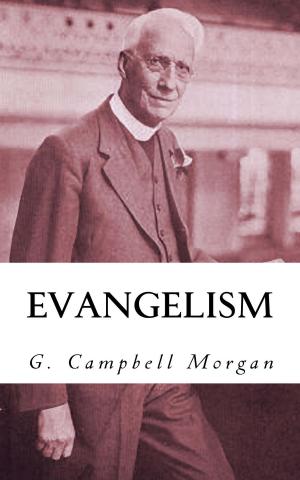The Life and Times of Ulrich Zwingli
Nonfiction, Religion & Spirituality, Christianity, Church, Church & State, Church History, General Christianity| Author: | J. J. Hottinger, T. C. Porter | ISBN: | 1230002104027 |
| Publisher: | CrossReach Publications | Publication: | January 18, 2018 |
| Imprint: | Language: | English |
| Author: | J. J. Hottinger, T. C. Porter |
| ISBN: | 1230002104027 |
| Publisher: | CrossReach Publications |
| Publication: | January 18, 2018 |
| Imprint: | |
| Language: | English |
Author’s Preface.
“Biographers should not busy themselves so much with deeds, as their moving causes; with what motives, by what means, for what ends and under what circumstances they were performed. If we limit ourselves to a simple detail of facts, our judgment is determined by success; and upright men are condemned as evil or imprudent, because of the unfavorable issue of their endeavors. To set forth the views of Zwingli and the high mark to which he strove to carry everything, were dangerous—would open a wide door to envy and calumniation, and would not be permitted by the government of Zurich; since it would be a violation of the Landfriede, various resolutions of the cities and the Hereditary Union with Austria. Without this, however, the history of his life would be dry, and posterity would neither admire nor love Zwingli, but regard him as a thoughtless, foolish man. The unhappy catastrophe has placed everything in a false light.”
The foregoing remarks of Bullinger show with what caution our forefathers were obliged to speak of Zwingli’s political acts. Indeed, after the battle of Cappel they were looked upon with little favor, even in the Reformed portion of the Confederacy. Bullinger himself, Zwingli’s successor, was for the moment filled with despondency. He wrote to his friend, Myconius: “We will never come together again. No one trusts his neighbor any longer. Surely, surely, we live in the last times. It is all over with the Confederacy.” The passage above-cited was written perhaps at this juncture. But he soon recovered his courage. His confidence in God returned with renewed strength, and he then began that career, which was so active, so noble and so full of blessing. He continued the work of his illustrious predecessor, and described it also with a powerful pen and a reverent heart, leaving behind, for thoughtful readers at least, intimations of what he durst not wholly reveal to his contemporaries. Three centuries have since gone by, and unrestricted access to archives and multiplied investigations have brought to light reports and documents hitherto unknown. From these materials, the author endeavored, fifteen years ago, to delineate the life and times of Zwingli. That volume was designed for those, who study history as a science: the aim of this one is to present the same results in a popular form. And as our people, now a-days, pay so much attention to what is written and spoken, let them hear once more the voice of one of the noblest statesmen of former ages; let them consider his acts, and ponder over his sad fate. If we regard him merely as a reformer of the Church, he may perhaps appear to us surrounded by a brighter glory; but history demands a full representation, and such a representation exhibits him as a man “possessed of like passions with ourselves.” Yet, just in the acknowledgement of his own infirmities by Zwingli, and in his submission with humble faith to a Higher Power, do the unmistakable features of true religion shine victoriously above that worship of self which springs only from vain conceit.—May the following work produce the same conviction in the mind of the reader!
Preface.
The volume, here translated, was published in Zurich in the year 1842, and may be regarded as the fullest and most reliable history of Zwingli and his times that has yet appeared; for, in addition to the numerous works, in Latin and German, which relate to this particular period, the author has had free access to an immense mass of important and necessary state-papers, long buried in the archives of the Canton.
Author’s Preface.
“Biographers should not busy themselves so much with deeds, as their moving causes; with what motives, by what means, for what ends and under what circumstances they were performed. If we limit ourselves to a simple detail of facts, our judgment is determined by success; and upright men are condemned as evil or imprudent, because of the unfavorable issue of their endeavors. To set forth the views of Zwingli and the high mark to which he strove to carry everything, were dangerous—would open a wide door to envy and calumniation, and would not be permitted by the government of Zurich; since it would be a violation of the Landfriede, various resolutions of the cities and the Hereditary Union with Austria. Without this, however, the history of his life would be dry, and posterity would neither admire nor love Zwingli, but regard him as a thoughtless, foolish man. The unhappy catastrophe has placed everything in a false light.”
The foregoing remarks of Bullinger show with what caution our forefathers were obliged to speak of Zwingli’s political acts. Indeed, after the battle of Cappel they were looked upon with little favor, even in the Reformed portion of the Confederacy. Bullinger himself, Zwingli’s successor, was for the moment filled with despondency. He wrote to his friend, Myconius: “We will never come together again. No one trusts his neighbor any longer. Surely, surely, we live in the last times. It is all over with the Confederacy.” The passage above-cited was written perhaps at this juncture. But he soon recovered his courage. His confidence in God returned with renewed strength, and he then began that career, which was so active, so noble and so full of blessing. He continued the work of his illustrious predecessor, and described it also with a powerful pen and a reverent heart, leaving behind, for thoughtful readers at least, intimations of what he durst not wholly reveal to his contemporaries. Three centuries have since gone by, and unrestricted access to archives and multiplied investigations have brought to light reports and documents hitherto unknown. From these materials, the author endeavored, fifteen years ago, to delineate the life and times of Zwingli. That volume was designed for those, who study history as a science: the aim of this one is to present the same results in a popular form. And as our people, now a-days, pay so much attention to what is written and spoken, let them hear once more the voice of one of the noblest statesmen of former ages; let them consider his acts, and ponder over his sad fate. If we regard him merely as a reformer of the Church, he may perhaps appear to us surrounded by a brighter glory; but history demands a full representation, and such a representation exhibits him as a man “possessed of like passions with ourselves.” Yet, just in the acknowledgement of his own infirmities by Zwingli, and in his submission with humble faith to a Higher Power, do the unmistakable features of true religion shine victoriously above that worship of self which springs only from vain conceit.—May the following work produce the same conviction in the mind of the reader!
Preface.
The volume, here translated, was published in Zurich in the year 1842, and may be regarded as the fullest and most reliable history of Zwingli and his times that has yet appeared; for, in addition to the numerous works, in Latin and German, which relate to this particular period, the author has had free access to an immense mass of important and necessary state-papers, long buried in the archives of the Canton.















